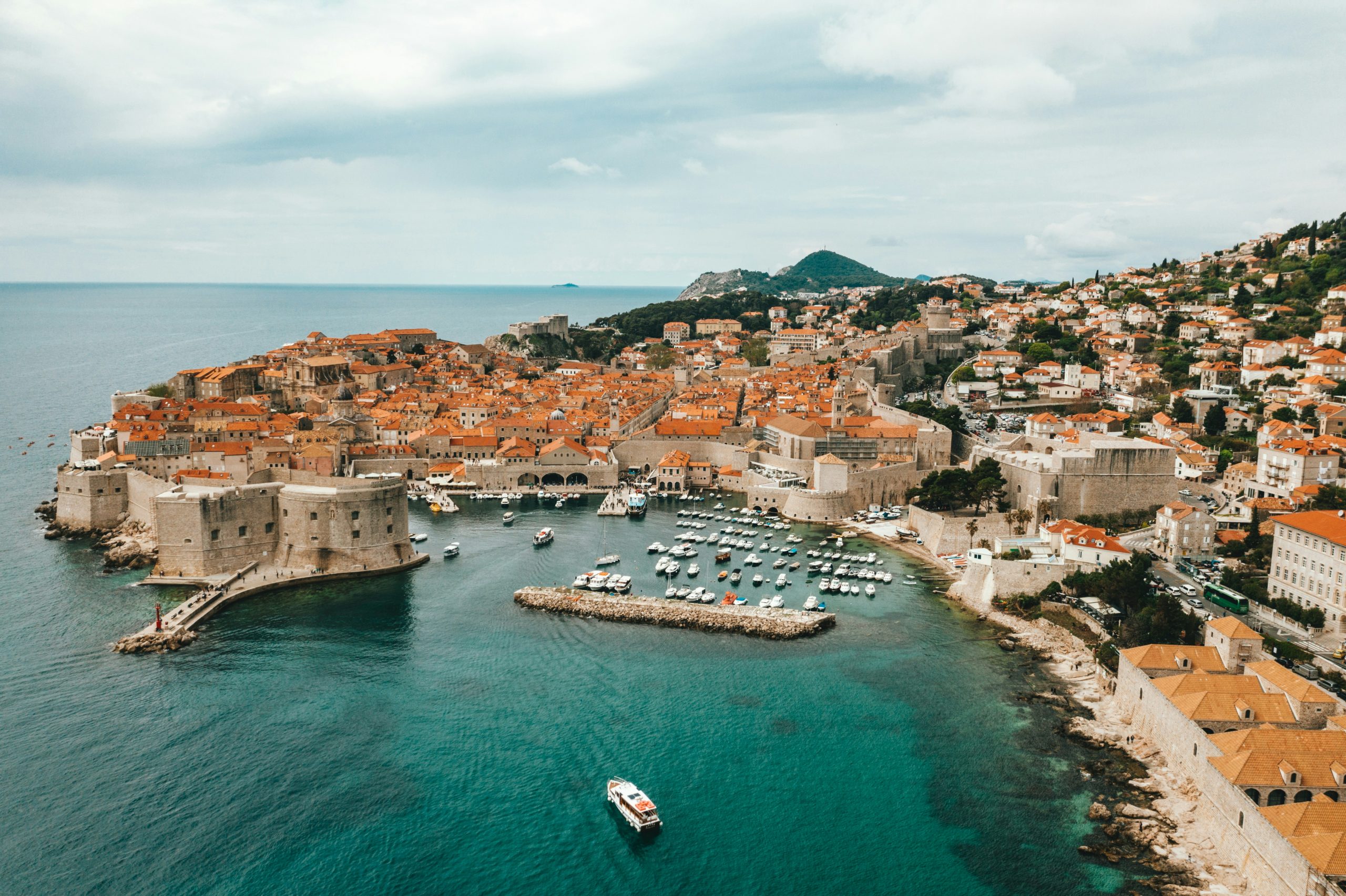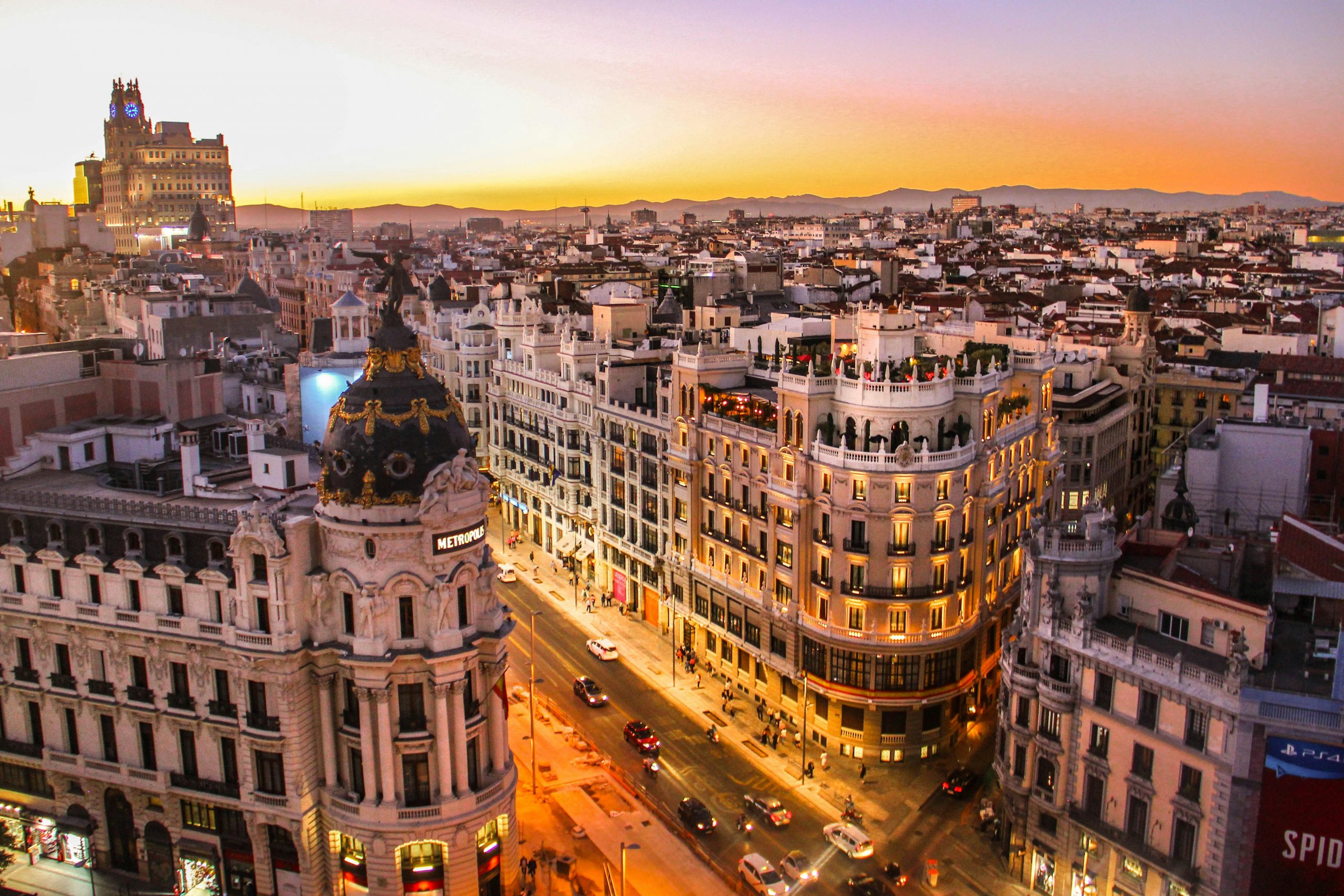✈️ Introduction
Croatia has rapidly become one of Europe’s hottest destinations for digital nomads. With its charming medieval towns, stunning Adriatic coastline, and affordable lifestyle compared to Western Europe, it’s no wonder remote workers are flocking here.
In January 2021, Croatia officially launched its Digital Nomad Visa (technically a residence permit for digital nomads). This made Croatia one of the first EU countries to create a dedicated visa for remote workers. By 2025, the program has become well-established and continues to attract freelancers, entrepreneurs, and remote employees from around the world.
This visa allows you to live in Croatia for up to 12 months, working remotely for foreign clients or employers — without needing to apply for a work permit or pay local income taxes.
In this comprehensive 2025 guide, we’ll cover:
- Who qualifies for the Croatia Digital Nomad Visa
- Eligibility criteria & income requirements
- Step-by-step application process
- Costs, documents & processing times
- Benefits of living in Croatia as a nomad
- Cost of living & best cities for digital nomads
- Family inclusion rules
- Tax obligations & insurance requirements
- Renewal options & FAQs
By the end, you’ll know if Croatia is the right digital nomad base for you.
👤 Who Qualifies for Croatia’s Digital Nomad Visa
The Croatia Digital Nomad Visa (officially a temporary residence permit) is open to third-country nationals who work remotely for non-Croatian companies.
You may qualify if you:
- Are a freelancer, contractor, entrepreneur, or employee of a foreign company.
- Earn a stable monthly income that meets the visa threshold.
- Hold valid health insurance for Croatia.
- Have no criminal record.
- Do not intend to seek employment with Croatian companies.
You are unlikely to qualify if you:
- Work for a Croatian employer or company.
- Cannot provide consistent proof of income.
- Fail to provide valid insurance coverage.
- Have a criminal record.
📋 Eligibility Criteria & Income Requirements (2025)
To apply for the Croatia Digital Nomad Visa, you must meet the following requirements:
Basic Criteria
- Valid Passport: Must be valid for at least 3 months beyond your stay.
- Remote Work Proof: Employment contract, business registration, or client agreements.
- Health Insurance: Must cover Croatia for the full duration of your visa.
- Clean Criminal Record: Certificate from your home country.
- Accommodation Proof: Rental contract, Airbnb booking, or property ownership.
Income Requirements
- Minimum €2,539 per month (approx. $2,750 USD) OR
- Proof of savings: €30,468 in the bank for the full year.
Dependents
If applying with family:
- Increase requirement by 10% per additional family member.
- Must show marriage/birth certificates (apostilled & translated).
✅ Quick Eligibility Checklist
- Do you earn at least €2,539/month or have €30,468+ in savings?
- Do you have valid health insurance for Croatia?
- Can you prove remote work outside Croatia?
- Do you have a clean criminal record?
- Do you have proof of accommodation in Croatia?
👉 If yes, you’re a strong candidate for Croatia’s Digital Nomad Visa.
Application Process, Documents, Fees & Timelines
🛠️ Step-by-Step Application Process
Croatia’s Digital Nomad Visa application is fairly straightforward, but it involves multiple steps and careful document preparation. Here’s how it works in 2025:
1. Choose Where to Apply
You can apply:
- At a Croatian embassy or consulate abroad before entering Croatia.
- At a local police station in Croatia if you’re already in the country on a valid tourist visa or Schengen entry.
2. Fill Out the Application Form
- Obtain the official Temporary Stay Application Form (Form 1a).
- Complete it carefully in Croatian or English.
3. Gather Required Documents
Prepare financial proof, health insurance, accommodation details, and criminal record certificates. (See checklist below.)
4. Submit Application
- Submit your documents in person at the embassy/consulate or local police station.
- Pay the initial application fee.
- Provide biometric photos and fingerprints.
5. Wait for Review
- Croatian authorities will verify your income, insurance, and background check.
- If anything is missing, you may be asked to submit additional documents.
6. Receive Approval & Residence Permit
- If approved, you’ll be issued a Temporary Residence Permit valid for up to 12 months.
- You’ll also be issued a biometric residence card (Osobna iskaznica).
7. Register Your Address
- Within 30 days of approval, you must register your residential address with the local police station.
📄 Required Documents Checklist (2025)
✅ Valid Passport – Must be valid for 3+ months beyond visa period.
✅ Completed Application Form (Form 1a) – Available at embassies or police stations.
✅ Recent Passport Photos – Compliant with biometric standards.
✅ Proof of Remote Work – Employment contract, freelance agreements, or company registration documents.
✅ Bank Statements – Last 6 months showing income of at least €2,539/month.
✅ Proof of Savings (alternative option) – €30,468 in bank account.
✅ Health Insurance – Covering Croatia for the full duration of your stay.
✅ Criminal Record Certificate – From your home country (not older than 6 months, apostilled & translated).
✅ Proof of Accommodation – Rental agreement, Airbnb booking, or property ownership deed.
✅ Marriage/Birth Certificates – If applying with spouse/children (apostilled & translated).
✅ Payment Receipt – Proof of application fee payment.
👉 Pro Tip: All foreign documents must be apostilled/legalized and officially translated into Croatian.
💶 Fees & Costs
- Application Fee: ~€60 ($65 USD).
- Biometric Residence Card Fee: ~€31 ($34 USD).
- Administrative Fees: ~€45 ($48 USD).
- Translations & Apostille: €20–€50 per page, depending on the country.
Total Estimated Cost (Individual)
💰 Around €150–€300 ($160–$325 USD) for the full application.
⏱️ Processing Times
- Embassy/Consulate Applications: 2–3 months.
- In-Croatia Applications (Police Station): 3–8 weeks, depending on workload.
- Faster approvals often occur if all documents are complete and correctly translated.
📝 Quick Application Summary
- ✅ Apply at a Croatian embassy/consulate OR local police station.
- ✅ Submit completed application form + supporting documents.
- ✅ Pay application fees (~€150–€300).
- ✅ Wait 4–12 weeks for approval.
- ✅ Receive 1-year residence permit + biometric ID card.
- ✅ Register your address in Croatia.
Benefits, Cost of Living & Best Cities for Digital Nomads
🎉 Benefits of the Croatia Digital Nomad Visa
Croatia’s program offers a unique mix of lifestyle perks and practical advantages.
1. Legal Stay for Remote Work
- Provides a 1-year temporary residence permit.
- No need to exit every 90 days like with a tourist visa.
2. No Local Income Tax
- Digital nomads are exempt from paying Croatian income tax if their income comes from abroad.
- A huge benefit compared to some European countries.
3. Family-Friendly Visa
- Spouse and dependent children can join under your application.
- Only requires slightly higher financial proof.
4. Affordable European Destination
- Cheaper than Western Europe, with a lower cost of living but high quality of life.
- Great option for nomads who want Europe without the high price tag.
5. Breathtaking Lifestyle
- Access to over 1,000 Adriatic islands, UNESCO heritage towns, and Mediterranean climate.
- Balance of city life, history, and seaside relaxation.
6. Strong Nomad Community
- Cities like Zagreb, Split, and Dubrovnik already have established coworking spaces and expat hubs.
- In 2021, Croatia even hosted the world’s first Digital Nomad-in-Residence program in Dubrovnik.
💸 Cost of Living in Croatia (2025)
Croatia is affordable compared to Western Europe, but costs vary between coastal tourist hubs and inland cities.
🏠 Housing
- Zagreb (capital): €500–€900/month for a 1-bedroom apartment.
- Split: €600–€1,000/month (higher in summer).
- Dubrovnik: €800–€1,300/month (very touristy, expensive in peak season).
- Zadar: €500–€850/month.
- Inland towns: €300–€600/month.
🍴 Food & Dining
- Groceries: €200–€350/month per person.
- Local restaurants: €8–€15 per meal.
- Mid-range dining: €20–€30 per person.
- Coffee: €2–€3.
🚇 Transportation
- Public transport (Zagreb trams/buses): €0.60–€1.50 per ride.
- Monthly public transport pass: €40–€50.
- Taxi/Uber short ride: €5–€10.
- Domestic flights: €50–€120 (Zagreb–Dubrovnik).
- Ferries to islands: €5–€25 depending on route.
💻 Coworking Spaces
- Zagreb: €120–€250/month.
- Split: €100–€200/month.
- Dubrovnik: €150–€300/month.
- Zadar: €100–€150/month.
👉 Average Monthly Budget for a Digital Nomad:
- Frugal lifestyle: €1,200–€1,500.
- Comfortable lifestyle: €1,800–€2,500.
- Family lifestyle: €3,000–€4,500.
🏙️ Best Cities in Croatia for Digital Nomads
1. Zagreb – Capital & Urban Hub
- Best for: Year-round living, cultural scene, affordability.
- Pros: Lower cost than the coast, lots of coworking spaces, good transport.
- Cons: No beach, colder winters.
2. Split – Coastal City with Island Access
- Best for: Beach lovers, island hoppers.
- Pros: Lively old town, growing expat scene, ferries to nearby islands.
- Cons: Higher rent in summer, crowded tourist season.
3. Dubrovnik – Historic & Scenic
- Best for: Culture, heritage, and luxury nomads.
- Pros: Stunning UNESCO city, great for short-term stays.
- Cons: Very expensive in high season, less practical for year-round living.
4. Zadar – Balanced Lifestyle
- Best for: Budget-friendly coastal living.
- Pros: Beautiful beaches, Roman history, quieter than Split/Dubrovnik.
- Cons: Smaller expat community.
5. Rijeka – Port City & Gateway to Istria
- Best for: Offbeat nomads seeking authenticity.
- Pros: Affordable, cultural events, close to Istrian peninsula.
- Cons: Industrial vibe compared to touristy towns.
6. Smaller Islands (Hvar, Korčula, Brač)
- Best for: Slow living & nature.
- Pros: Gorgeous scenery, relaxed lifestyle.
- Cons: Limited internet reliability & infrastructure outside summer.
🌤️ Climate & Lifestyle
- Coastal Areas (Split, Dubrovnik, Zadar): Mediterranean climate with hot summers (28–34°C) and mild winters (8–15°C).
- Inland Areas (Zagreb): Continental climate with cold winters (0–5°C) and warm summers (25–30°C).
- Lifestyle: Outdoor cafés, fresh seafood, festivals, hiking, sailing, and relaxed Mediterranean pace.
👉 Croatia offers the perfect mix of culture, affordability, and natural beauty, making it one of Europe’s most attractive digital nomad destinations.
Family Inclusion, Taxes & Pros and Cons
👨👩👧 Family Inclusion
Croatia’s Digital Nomad Visa is family-friendly, allowing your spouse and dependent children to join you.
Who Can Join You?
- Spouse or legal partner
- Children under 18 (or older if financially dependent or in full-time education)
Requirements for Family Members
- You must show additional income or higher savings. The income threshold increases by 10% per dependent.
- Marriage and birth certificates must be provided, apostilled and translated into Croatian.
- Family members must have valid health insurance for the duration of their stay.
Benefits for Family Members
- They receive the same 1-year residence permit.
- Children can attend Croatian public schools (free) or private/international schools (paid).
- Access to healthcare once registered in Croatia.
🏦 Taxes for Digital Nomads in Croatia
One of the main attractions of Croatia’s Digital Nomad Visa is the tax exemption.
Tax Residency Rules
- Digital nomads on this visa are not considered tax residents in Croatia, provided their income comes from abroad.
- This means you do not pay Croatian personal income tax on foreign earnings.
Business/Local Work Restrictions
- You may not work for Croatian employers on this visa.
- All work must be for foreign companies or clients.
👉 If you plan to switch to local work, you must apply for a different type of work visa or permit.
🛡️ Health Insurance Requirements
Health insurance is mandatory for the application.
Options for Digital Nomads & Families
- International Private Insurance – Most nomads choose this option.
- EU Health Insurance Card (EHIC) – If you’re from the EU/EEA, you may use this temporarily, but additional coverage may be required.
- Local Croatian Insurance (HZZO) – Available once you are registered, but optional for digital nomads.
Key Rules
- Must cover medical emergencies in Croatia.
- Must remain valid for the entire visa duration.
- Family dependents must also be insured.
✅ Pros of Croatia’s Digital Nomad Visa
- Tax-Free Income – You won’t pay Croatian taxes on foreign earnings.
- Affordable Cost of Living – Cheaper than Western Europe.
- Beautiful Scenery – Coastline, islands, and historic towns.
- Strong Expat & Nomad Communities – Growing coworking hubs in Split, Zagreb, and Dubrovnik.
- Family-Friendly – Dependents can join easily.
- High Quality of Life – Mediterranean lifestyle, safety, and good healthcare.
- EU Location – Croatia is part of the EU and Schengen Zone (from 2023), making travel easy.
⚠️ Cons of Croatia’s Digital Nomad Visa
- Short Duration – Maximum 1 year with no renewal option (you must reapply after leaving).
- Paperwork – Apostilles, translations, and local procedures can be time-consuming.
- Tourist Prices – Rent and services in Dubrovnik and Split spike in summer.
- Internet Variability – Generally good, but weaker on small islands.
- Language Barrier – English is widely spoken in cities, less so in rural areas.
- No Direct Path to Residency – The visa doesn’t count toward permanent residency or citizenship.
Renewal, Long-Term Options, FAQs & Conclusion
🔄 Renewal & Extension Options
Unlike some digital nomad visas, Croatia’s Digital Nomad Visa cannot be renewed directly.
Key Rules
- Visa is valid for up to 12 months.
- It cannot be extended beyond this period.
- After it expires, you must leave Croatia and reapply if you wish to return.
👉 Many nomads apply again after a short break or switch to another visa category.
🏛️ Long-Term Options After the Digital Nomad Visa
If you fall in love with Croatia and want to stay longer, you may explore alternative visas:
- Work Permit (Local Employer) – If you find a job with a Croatian company.
- Family Reunification Visa – If your spouse/partner has long-term residency.
- Business/Investor Visa – If you establish a company in Croatia.
- Permanent Residency – Typically requires 5 years of continuous legal stay, but time on the Digital Nomad Visa does not count toward this.
👉 For most nomads, the visa is best seen as a short- to medium-term solution, not a pathway to permanent residency.
❓ FAQs About Croatia’s Digital Nomad Visa (2025)
1. How long is the Croatia Digital Nomad Visa valid?
Up to 12 months, non-renewable.
2. Can I reapply after it expires?
Yes, but you must leave Croatia before submitting a new application.
3. Do I pay taxes in Croatia?
No, as long as your income is from foreign sources.
4. How much income do I need?
- At least €2,539/month income, or
- €30,468 in savings for the year.
5. Can I bring my family?
Yes, but the financial threshold increases by 10% per dependent.
6. How long does the application take?
- Embassy applications: ~2–3 months.
- In-country (police station): ~1–2 months.
7. Can I work for Croatian companies?
No. The visa only allows remote work for foreign employers/clients.
8. Do I need health insurance?
Yes, it must cover Croatia for your full stay.
9. Does this visa count toward permanent residency?
No. Time spent under the Digital Nomad Visa does not count.
10. Is English widely spoken?
Yes, in tourist hubs and cities. Less so in rural areas, but younger Croatians often speak English well.
🌟 Conclusion
The Croatia Digital Nomad Visa is one of the most attractive short-term residency options in Europe for remote workers in 2025.
Why It’s Attractive
✅ 12-month legal stay
✅ No local taxes on foreign income
✅ Family inclusion allowed
✅ Affordable cost of living compared to Western Europe
✅ Stunning Adriatic lifestyle & strong nomad community
Challenges to Consider
⚠️ Non-renewable (max 1 year stay per permit)
⚠️ Bureaucracy with translations & apostilles
⚠️ Higher seasonal living costs in tourist cities
⚠️ No path to permanent residency
Who Should Choose Croatia?
- Digital nomads who want to experience Europe affordably.
- Families seeking a safe, scenic, and cultural short-term base.
- Remote workers who want to combine Mediterranean lifestyle + EU access without complex taxes.
- Nomads who don’t need a long-term settlement but want 1 year of European living in paradise.
👉 Croatia is best for medium-term nomads who value lifestyle, culture, and affordability — but it’s not designed for permanent migration.



